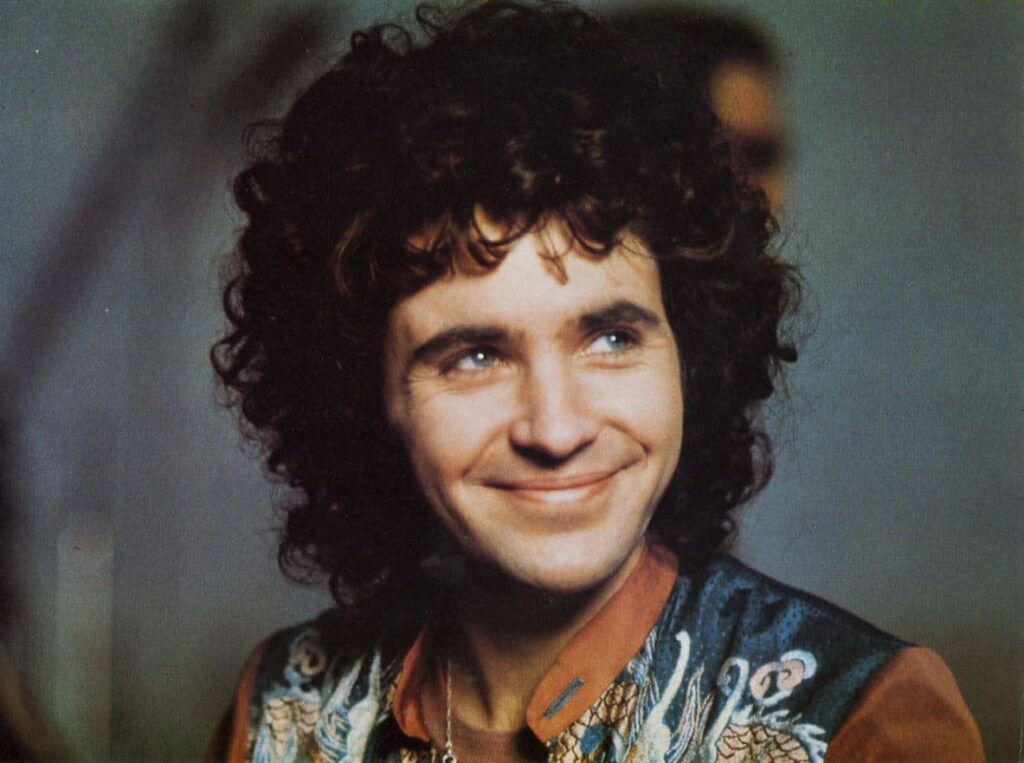
The Unseen Revolution: A New Dawn of Hope and Political Ambition
For those of us who came of age with the great concept musicals of the 1970s, the name David Essex conjures up a heady mix of pop stardom and theatrical brilliance. While many recall his smash hit “Oh What a Circus” from the legendary rock opera Evita, the song “A New Argentina” offers a far more significant, if less frequently singled-out, dramatic moment. This track is not a standalone single from Essex, but a key ensemble piece from the original 1976 concept album and subsequent stage production of Andrew Lloyd Webber and Tim Rice’s masterpiece, Evita. Therefore, it does not have an individual single chart position, but it is integral to an Original London Cast Album that reached the UK charts, though the show’s massive popularity is the true measure of its reach.
This song is the roaring climax of Act I, an almost frantic, exhilarating crescendo that captures the very moment Juan Perón secures the presidency of Argentina, catapulting his ambitious wife, Eva Duarte de Perón, into the position of First Lady. It is a moment of electric, revolutionary promise, sung by the newly empowered masses—the descamisados (the “shirtless ones”)—and driven by the persuasive voices of Eva and Juan Perón themselves.
The true meaning of “A New Argentina” lies in its stark portrayal of political awakening and manipulation. It begins with the palpable tension of a critical election, where Perón’s opponents try a last-ditch effort to stop him, but quickly transforms into a jubilant, almost terrifying celebration of victory. The lyrics are less a gentle folk ballad and more a thrilling, propulsive political chant. They speak of crushing the old, complacent order (“The men who’ve always had the whip hand…”) and building a future where the people, the forgotten working class, will finally share the wealth and the power. Lines like “We’ll build a new Argentina / Will make our country great!” are not just slogans; they are heartfelt cries of desperate hope from a populace long denied a voice.
Yet, there is a chilling undercurrent to this triumph, which the character of Che—a cynical observer who often breaks the fourth wall—subtly highlights. The song is not just about hope; it’s about a raw, almost violent transfer of power. Eva’s drive is relentless, her ambition an engine that propels Perón’s rise, and the crowd’s passionate frenzy is exactly what she uses to secure their fate. The music swells from an anxious minor key into a glorious, chest-pounding major key as Perón announces their victory, a moment that must have sent shivers down the spines of theatregoers then, and still evokes the potent, dangerous thrill of a true mass movement today.
For those of us who can remember a time when concept albums were as important as the shows they birthed, “A New Argentina” is a visceral, unforgettable sequence. It is the sound of history being made, the moment a former small-town girl seals her destiny, and in doing so, forever changes the trajectory of a nation. It captures a fleeting, spectacular illusion: the intoxicating belief that a simple election can truly wash away decades of inequality. The song’s power is in its dual nature: a beautiful anthem of popular hope, and a subtle warning about the cost of political fever. It is a moment of pure, heart-stopping theatre, and a crucial piece of the David Essex legacy that extends far beyond a handful of solo hits.